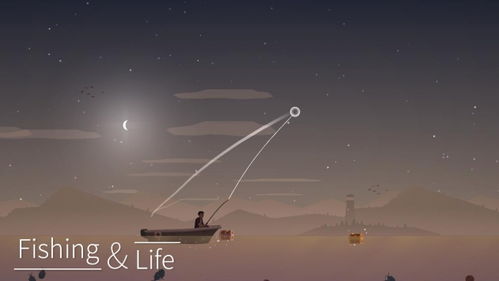Content:
Embarking on the thrilling journey of freshwater fishing can be both exhilarating and daunting for new anglers. The serene beauty of the lake, river, or stream, coupled with the anticipation of catching your first fish, creates an unforgettable experience. However, to make the most out of your fishing adventures, it's essential to equip yourself with the right knowledge and techniques. In this comprehensive guide, we'll delve into the art of freshwater fishing, offering valuable tips and methods to help new anglers get started on the right foot.
Understanding Freshwater Fishing
Before diving into the specifics of fishing techniques, it's crucial to understand the basics of freshwater fishing. Freshwater fish, such as bass, trout, and catfish, thrive in lakes, rivers, and streams. These environments offer a variety of habitats, including shallow water, deep holes, and weed beds, which can significantly impact your fishing strategy.
Choosing the Right Gear
The first step in mastering freshwater fishing is selecting the appropriate gear. Here's a breakdown of the essential equipment you'll need:
Rod and Reel: Choose a rod and reel that match the type of fish you're targeting. For instance, a lightweight spinning rod and reel are ideal for panfish, while a heavier baitcasting setup is better for larger species like bass or catfish.
Line: The type of line you use depends on the fish you're after and the environment you're fishing in. Monofilament line is versatile and easy to handle, while fluorocarbon line is nearly invisible underwater and excellent for sensitive fish.
Hooks: Select hooks that are appropriate for the size and species of fish you're targeting. Smaller hooks are suitable for panfish, while larger hooks are needed for bigger fish.
Lures and Baits: The variety of lures and baits available can be overwhelming. Start with basic options like worms, crankbaits, and jigs for panfish and bass, and expand your collection as you gain more experience.
Tackle Box: A well-organized tackle box is essential for storing your gear. Keep your hooks, lures, sinkers, and other accessories neatly arranged for easy access.
Mastering the Basics of Casting
Casting is a fundamental skill that every angler must master. Here are some tips to improve your casting technique:
Practice: Cast in an open area to get a feel for your rod and line. Practice different casting techniques, such as the overhead cast, sidearm cast, and roll cast.
Tension: Maintain a consistent tension on your line throughout the casting motion. This ensures a smooth, accurate cast.

Timing: The key to a successful cast is timing. Release your line at the right moment to achieve the desired distance and accuracy.
Accuracy: Focus on your target and aim for a precise cast. Practice casting to different spots to improve your accuracy.
Fishing Techniques for Different Species
Different fish species require different techniques. Here's a brief overview of some common freshwater fishing techniques:
Panfish: Use small jigs, worms, or crickets. Cast near shallow water structures like rocks, logs, and weed beds.
Bass: Employ a variety of techniques, including casting, flipping, and pitching. Use lures like crankbaits, spinnerbaits, and soft plastics.
Trout: Trout are often found in cold, clear water. Use light tackle and small lures like nymphs, streamers, and spinners.
Catfish: Catfish are bottom feeders, so use heavy tackle and baits like nightcrawlers, chicken liver, or stink baits. Cast near structures like fallen trees, rocks, and bridge pilings.
Reading the Water
Understanding the behavior of fish in different water conditions is crucial for successful fishing. Here are some tips for reading the water:
Observe the Surface: Look for signs of fish activity, such as surface disturbances, boils, or rises.
Study the Bottom: Identify structures like rocks, logs, and weed beds that fish may use as cover.
Analyze the Water Flow: Understand how water currents affect fish movement and feeding patterns.
Weather Conditions: Pay attention to weather changes, as they can significantly impact fish behavior.
Safety and Etiquette
Safety and etiquette are essential aspects of freshwater fishing. Here are some tips to keep in mind:
Safety First: Always wear a life jacket when fishing from a boat or in deep water.
Respect the Environment: Keep the area clean and dispose of trash properly.
Follow Local Regulations: Be aware of fishing regulations, such as size and catch limits, and obtain any necessary permits.
Be Courteous: Share the water with other anglers and respect their space.
In conclusion, freshwater fishing is a rewarding hobby that requires patience, practice, and a willingness to learn. By understanding the basics of fishing gear, mastering casting techniques, and adapting your approach to different fish species and environments, you'll be well on your way to becoming a skilled angler. Remember to prioritize safety and respect for the environment, and enjoy the tranquility and excitement that freshwater fishing has to offer. Happy fishing!












